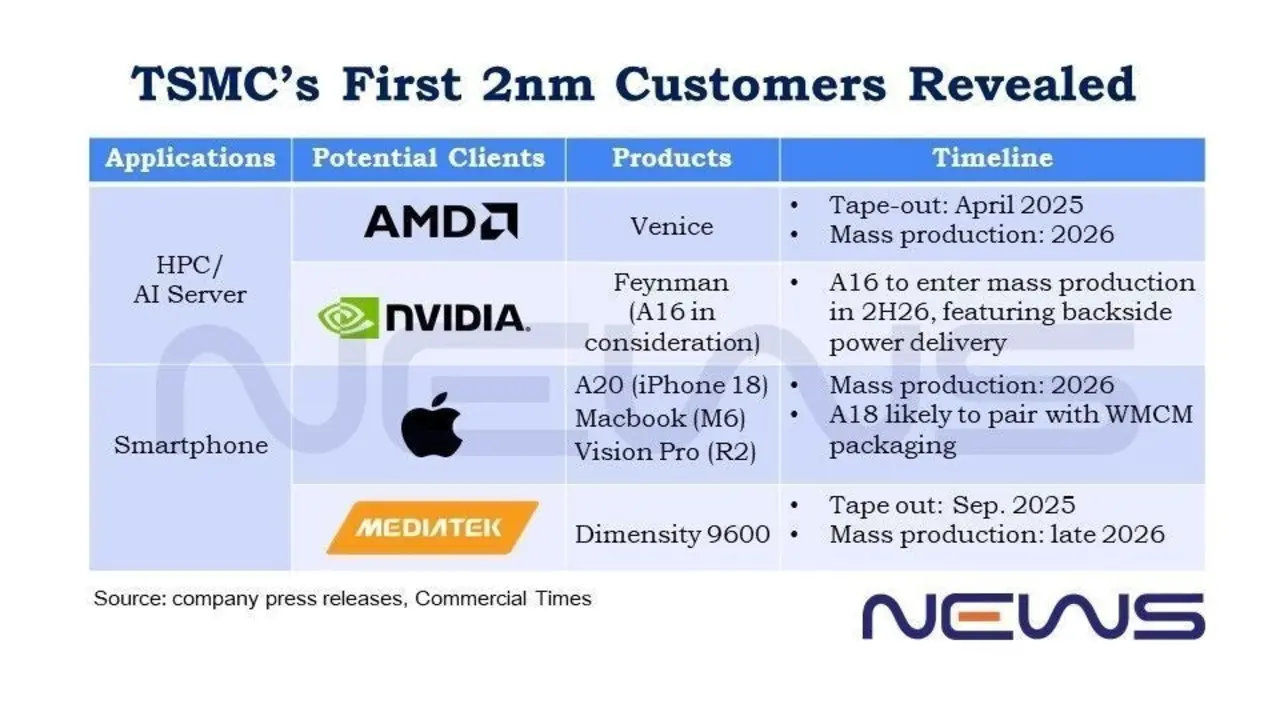TSMC, the largest player in global chip production, has announced its first customers for its next-generation 2-nanometer (nm) N2 manufacturing process. According to information shared by industry analyst TrendForce, Apple, AMD, Nvidia, and MediaTek are among the first companies to use the Taiwanese tech giant’s new manufacturing technology. However, the most notable omission from the list is Intel, once the industry leader.
TSMC Coming with 2nm Manufacturing Process
According to the information shared, Apple appears to be the largest customer for TSMC’s 2nm process. The company plans to use its A20 processors, which will enter mass production in 2026, in the iPhone 18 series. At the same time, the M6 series chips for Mac computers and the R2 chip developed for the augmented reality device Vision Pro will also be manufactured using the N2 process.

On the AMD side, the CCD (CPU Core Die) designs of the EPYC “Venice” processors featuring the Zen 6 architecture will be implemented using the N2 process. The Zen 6 CCD design completed the tape-out phase in April 2025, and mass production is scheduled for 2026. Meanwhile, MediaTek’s new flagship, the Dimensity 9600 series, recently completed the tape-out phase and will enter production in late 2026.
For Nvidia, the process is a bit different. The company is preparing to manufacture its Feynman GPU series, which will be released after the Rubin architecture, using TSMC’s 2nm process. While TrendForce indicates that the Feynman architecture will use the N2 process, according to information from the Commercial Times, Nvidia may also turn to the more advanced A16 process.
The 16-angstrom A16 process, also known as the 1.6nm process, will support back power delivery technology. This technology offers a feature that will increase power efficiency and performance for AI GPUs.
It is notable that Intel is not included in the initial customer list. Intel, which currently uses TSMC’s 3nm N3B process for both desktop and server processors, is focusing on its own manufacturing technologies in the future.
The company will use RibbonFET and PowerVia technologies in its 18A process and is aiming for a more advanced 14A process later. This suggests that Intel does not currently need TSMC’s 2nm-class manufacturing capacity.
High-volume production of TSMC’s 2nm process will begin in the second half of 2026. This new technology will play a key role in the next-generation products of many technology giants, from Apple and MediaTek to AMD and Nvidia.













